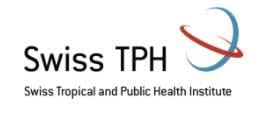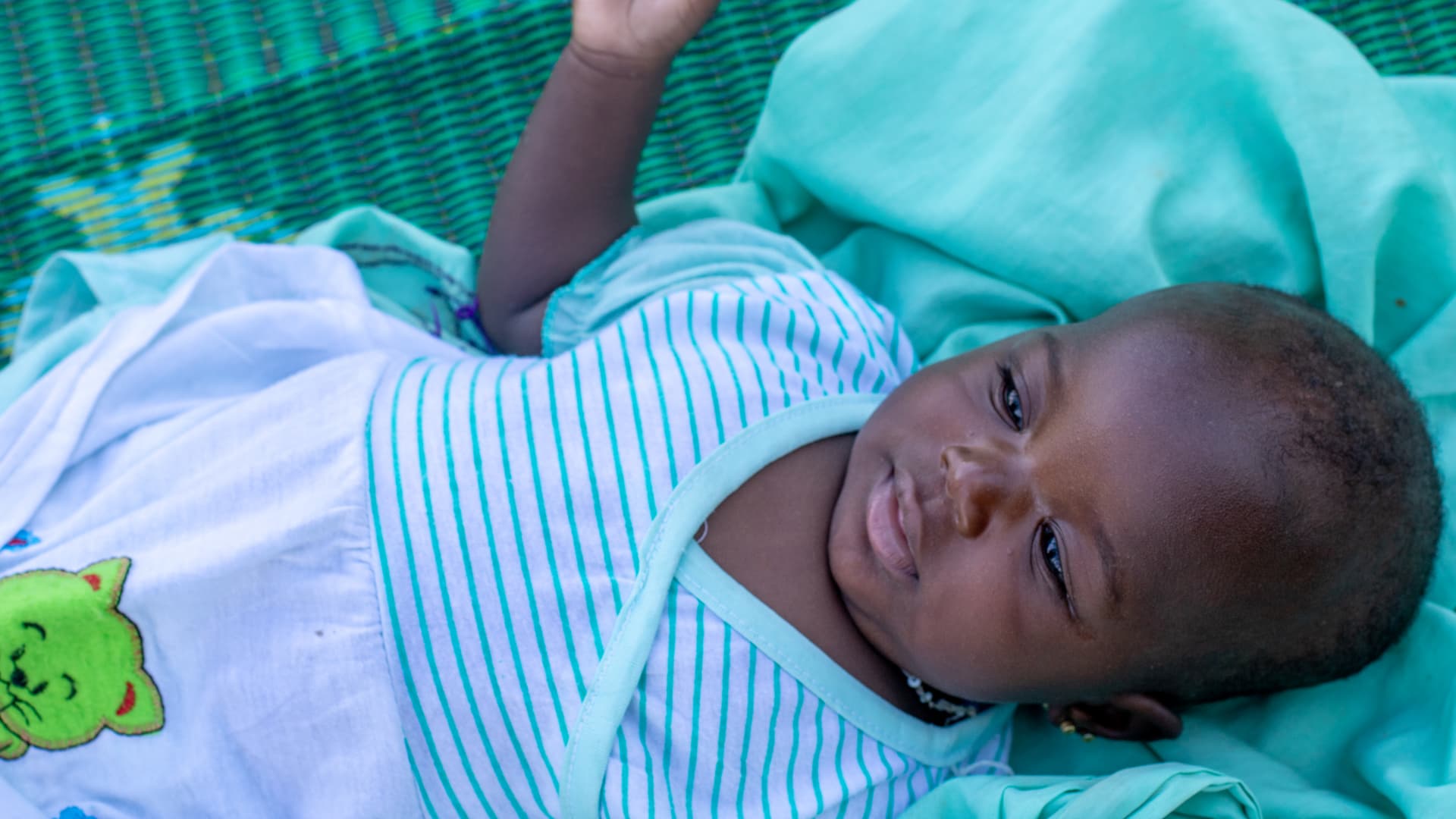Through the SIMESON approach (Simulation of Essential Skills in Obstetrical and Neonatal care), Tdh has trained midwifes and health workers in public health facilities of Mali, Guinea, Nepal and Bangladesh to make sustainable improvements to the quality of care provided at birth with links to the prenatal and postnatal care.
Our impact
219
health workers trained with the SIMESON approach in Mali and Guinea in 2022
148
primary healthcare centres supported with the SIMESON approach in Mali and Guinea in 2022
145
health workers trained with the SIMESON approach from 59 primary health centres in Bangladesh and from 16 primary health centres in Nepal
In isolated areas characterised by deep and chronic poverty, access to basic health services, in particular maternal and neonatal care, is of serious concern. A shortage of qualified health workers makes the follow-up of pregnancies and giving birth in good conditions almost impossible. Maternal mortality is mainly due to postpartum haemorrhage, followed by infections and high blood pressure, while neonatal mortality is mainly caused by the complications of prematurity, infections or complications during childbirth. The training content of the SIMESON approach is based on WHO guidelines and adapted to national requirements including the needed modules to address the main issues affecting babies and their mothers at birth.
In these settings with difficult access to quality health care, mothers and their babies are the most vulnerable, particularly at birth. Tdh is committed to their survival and wellbeing. It is with this background that the SIMESON approach was firstly developed in Mali in order to reduce stillbirths as well as neonatal and maternal mortality.
Tdh understands the crucial role that water, sanitation and hygiene (WASH) plays in ensuring and sustaining maternal and new-born health outcomes, therefore Tdh has developed a digital tool called FACET to assess water conditions and services at the primary health care facilities, with a focus on the delivery room. Targeted interventions are then implemented to improve their WASH conditions. Tdh also contributes, when needed, in supplying medical commodities to ensure health workers have the necessary tools and equipment to provide quality care.
A pilot project with success
Our SIMESON approach was initially piloted in the district of Macina in Mali in October 2016, and the following year it expanded to the district of Markala. According to the external evaluation of the Swiss Tropical and Public Health Institute, the practical performance levels of all midwives in all the health centres increased from 37.4% to an encouraging 82.8%. SIMESON has particularly led to impressive improvements in the identification and management of postpartum haemorrhage, high blood pressure, newborn asphyxia, and low weight at birth. These results led Tdh to be awarded the Balzan Prize in 2018.
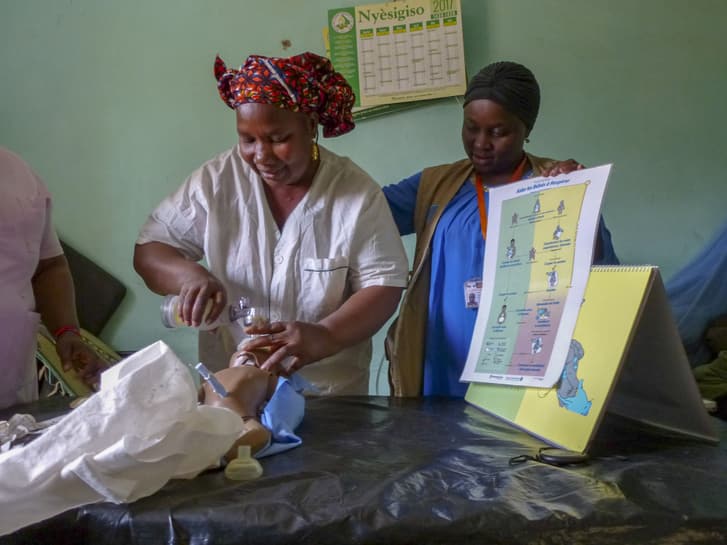
Training health workers to make a difference
As quality of care at birth is strongly determined by health workers' skills, it is essential to develop and maintain these competencies through regular trainings. Practical trainings can be performed on mannequins to learn and improve procedures that allow midwives to attend births safely and help newborns to adjust seamlessly to their new lives. These medical simulation techniques make it possible to repeat and control stressful situations without endangering patients' lives. This method, used already in large centres, is now made available by Tdh to birth attendants in peripheral settings: our mobile staff visits every health centre of a whole health district at least once every month to run practical and individual trainings. “Tdh (SIMESON) worked as a supplementary training, which has filled up my shortcomings in conducting normal delivery.” - Bangladesh Healthcare worker.
Outlook
In Africa, the SIMESON approach has been scaled up throughout 8 districts of the Ségou region in Mali. The approach has been transferred to the local health authorities in five of them where Tdh only supports supervision sessions. In the other 3 districts (Ségou, Barouéli and Bla) Tdh is still leading SIMESON implementation. There are ongoing discussions about implementing it in Burkina Faso and about adapting it for humanitarian contexts. In Asia, it has been implemented in the Kurigram district of Bangladesh and the Bardiya District in Nepal where no less than 20,000 women and as many children benefited from this approach thanks to Tdh. SIMESON has been designed to respond to global challenges and to be replicated in other countries and contexts. A generic SIMESON Training Manual that contains all the technical, teaching, administrative, monitoring and assessment guidelines is currently available.
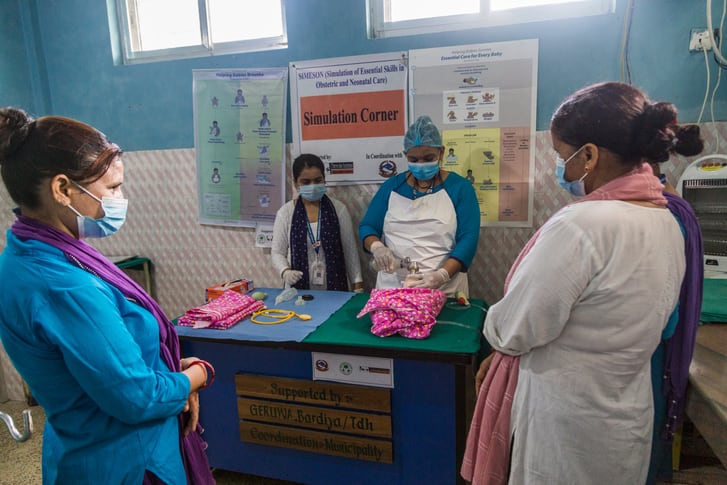
With the support of

Fondation Internationale Prix Balzan
The Balzan Prize International Foundation promotes culture, science and the most meritorious humanitarian initiatives in favour of peace and fraternity between peoples throughout the world.

Medicor Foundation
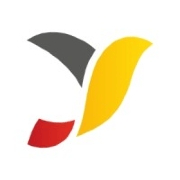
Enabel
Enabel manages development projects on behalf of the Belgian government and other donors. In this way, it contributes to global efforts for sustainable development.
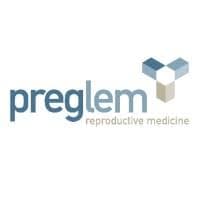
PregLem
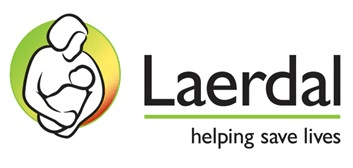
Laerdal Global Health
Go to the Laerdal Global Health website
